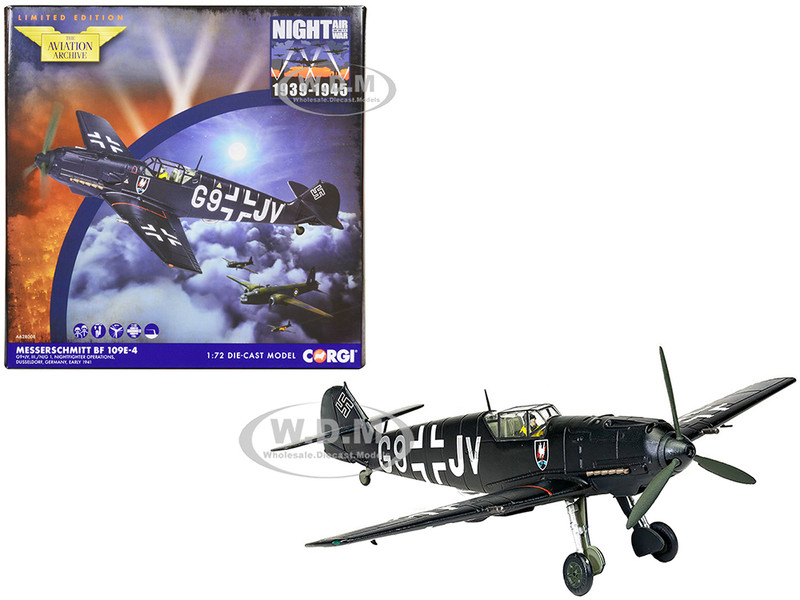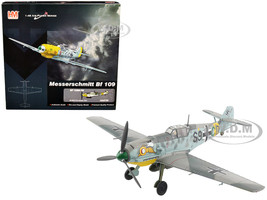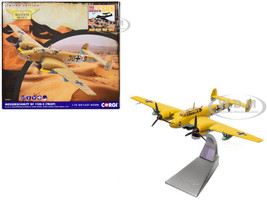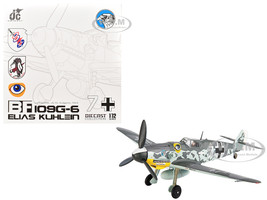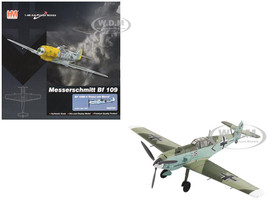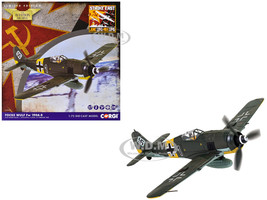- Home
- Messerschmitt Models
- Messerschmitt Bf 109E-4 Fighter Aircraft "G9+JV, Nightfighter Operations, Dusseldorf, Germany" (1941) Luftwaffe "The Aviation Archive" Series 1/72 Diecast Model by Corgi
Messerschmitt Bf 109E-4 Fighter Aircraft "G9+JV, Nightfighter Operations, Dusseldorf, Germany" (1941) Luftwaffe "The Aviation Archive" Series 1/72 Diecast Model by Corgi
Product Description
- Brand new 1/72 scale diecast model of Messerschmitt Bf 109E-4 Fighter Aircraft "G9+JV, Nightfighter Operations, Dusseldorf, Germany" (1941) Luftwaffe "The Aviation Archive" Series die cast model by Corgi.
- Limited edition.
- Brand new box.
- Detailed exterior.
- True-to-scale detail.
- Includes display stand.
- Officially licensed product.
- Includes pilot figure in cockpit.
- Manufacturer's original unopened packaging.
- Dimensions approximately Length- 5, Wingspan- 5.5 inches.
- Diecast metal and plastic construction for durability and a heavy, realistic feel.
- It is a highly detailed and accurate model, perfect for collectors and enthusiasts of military history.
- Realistic panel lines, antennas, access panels, and surface details for an authentic representation of the real-life airplane.
HISTORY ASPECTS:
This distinctive Messerschmitt Bf 109E fighter from Nachtjagdgeschwader 1 was equipped with a Telefunken designed Peil Gerat IV electronic radio direction finder unit, one of the first airborne interception units of its kind to be fitted in a Luftwaffe night fighter.
More of an onboard direction indicator than an actual interception radar unit, the Peil G IV featured the installation of a new cockpit indicator display which required the pilot to keep a needle coated in luminous paint in the center of the display and he knew that if he kept the needle in this central location, his aircraft was heading for the transmitting aircraft detected. Although still relatively primitive, this system allowed the pilot to fly his aircraft and effect the interception, as opposed to being preoccupied with constantly checking his course, something which greatly helped pilots of single seat fighters.
Although actually not all that effective in operation, the Peil Gerat IV unit would provide valuable research data for use in future projects, which would eventually lead to the introduction of much more capable systems. In the specialized role of night interceptions, single seat Luftwaffe fighters were not particularly suitable for the task, as their lack of range/loitering capability and the sheer workload placed on the pilot were both significant limiting factors and it didn't take long before the larger twin engine Messerschmitt Bf 110 and Junkers Ju88 aircraft were assigned to this role.
 Loading... Please wait...
Loading... Please wait...

